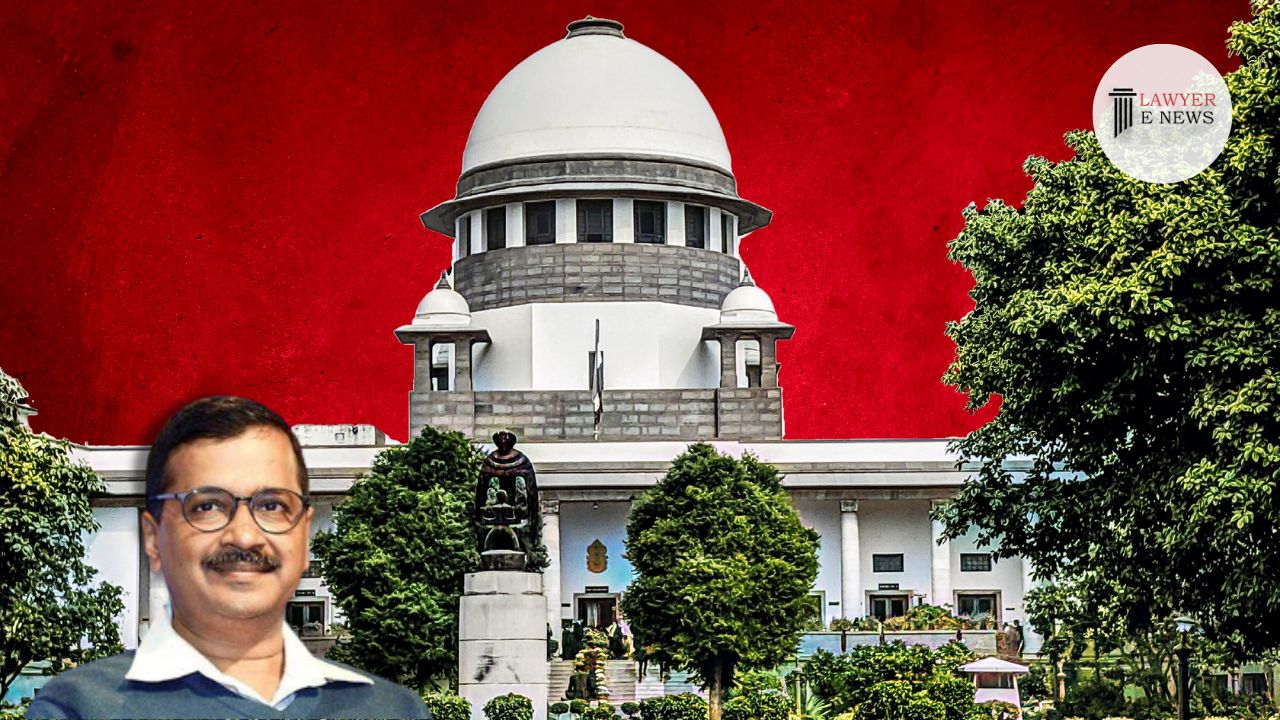-
by sayum
14 February 2026 2:22 PM



High Court’s rejection of Kejriwal’s writ petition overturned, arrest and remand orders nullified due to non-compliance with Section 19(1) PMLA.
In a significant ruling, the Supreme Court has declared the arrest of Delhi Chief Minister Arvind Kejriwal by the Directorate of Enforcement (DoE) as illegal. The apex court highlighted the failure to meet the stringent safeguards under Section 19(1) of the Prevention of Money Laundering Act (PMLA), 2002. The court’s decision overturns the Delhi High Court’s dismissal of Kejriwal’s writ petition challenging his arrest and subsequent remand orders.
The Central Bureau of Investigation (CBI) registered a case (RC No. 0032022A0053) against Kejriwal and others in connection with alleged irregularities in the Delhi excise policy. Following this, the DoE initiated a probe under PMLA, leading to Kejriwal’s arrest on 21st March 2024. Kejriwal challenged his arrest, arguing non-compliance with statutory preconditions required under Section 19 of the PMLA. The Delhi High Court dismissed his petition, leading to the present appeal.
The Supreme Court bench, comprising Justices Sanjiv Khanna and Bela M. Trivedi, emphasized the mandatory preconditions for arrest under Section 19 of the PMLA. “The conditions are stringent safeguards to protect life and liberty of individuals,” the bench noted, stressing the necessity of recording ‘reasons to believe’ that the person is guilty of an offense under the PMLA.
The court delineated the scope of judicial review concerning arrests under PMLA. It underscored that courts must ensure compliance with statutory conditions and constitutional rights, preventing arbitrary exercises of power. The judgment also addressed the necessity to arrest, as articulated in prior rulings such as Arnesh Kumar v. State of Bihar and Joginder Kumar v. State of Uttar Pradesh, asserting that mere non-cooperation with summons does not justify arrest.
The court extensively discussed the principles of evaluating the legality of an arrest. It reiterated that arrest under Section 19 PMLA must be based on recorded ‘reasons to believe’ and not merely on suspicion. “The officer must objectively assess all material in possession, including exculpatory evidence, before forming a belief of guilt,” the judgment stated.
Justice Khanna remarked, “The power to arrest is drastic and extreme, and therefore, must be exercised with utmost care and accountability, ensuring compliance with statutory and constitutional mandates.”
The Supreme Court’s decision to nullify Kejriwal’s arrest underscores the judiciary’s commitment to uphold procedural fairness and constitutional rights. This landmark ruling reinforces the need for stringent adherence to statutory safeguards in cases involving pre-trial arrests under PMLA. The judgment is anticipated to have significant implications on future enforcement actions under the PMLA, reinforcing the legal framework for protecting individual liberties.
Date of Decision: 3rd July 2024
Arvind Kejriwal v. Directorate of Enforcement
